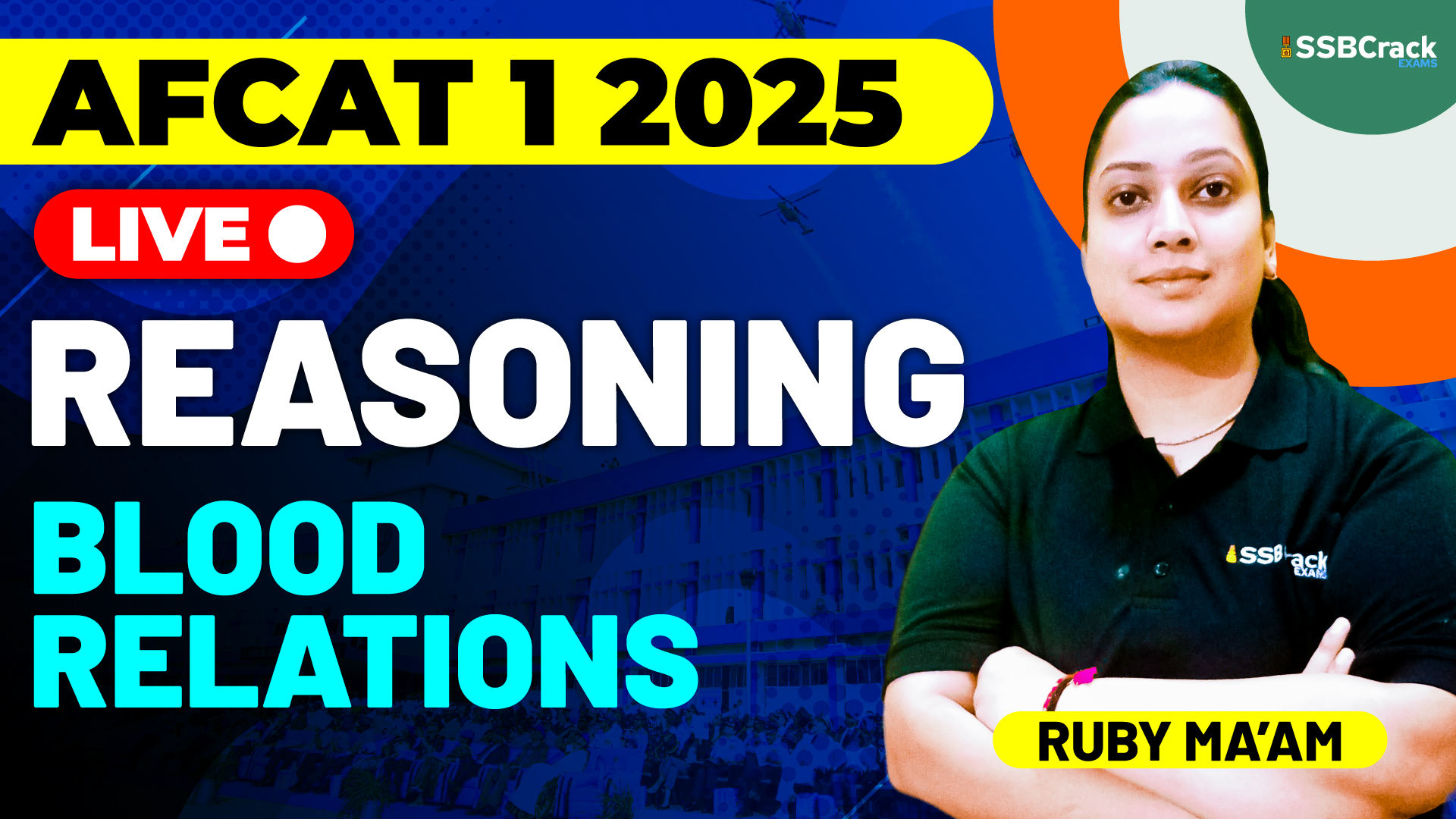The Air Force Common Admission Test (AFCAT) is a crucial gateway for candidates aspiring to join the Indian Air Force in various branches such as Flying, Ground Duty (Technical), and Ground Duty (Non-Technical). The exam evaluates a candidate’s reasoning, numerical ability, verbal ability, and general awareness. One significant section in the AFCAT exam that often determines your reasoning skills is the “Blood Relations” topic.
Why Blood Relations Matter in AFCAT
Blood relations questions are part of the reasoning section of the AFCAT exam, designed to assess a candidate’s ability to logically interpret and establish familial connections. These questions test your analytical thinking, problem-solving abilities, and decision-making speed—essential skills for any Air Force officer who will need to handle complex real-world scenarios.
Let’s explore the importance of blood relations in the AFCAT exam and how to master this section effectively.
1. Key Part of Logical Reasoning
Blood relations questions form a vital part of the logical reasoning section in AFCAT. As an officer in the Indian Air Force, you are expected to quickly analyze situations and make connections between seemingly unrelated facts. Blood relations test how well you can deduce relationships and organize information based on specific family hierarchies. Performing well in this section can significantly boost your overall reasoning score.
2. High Scoring Potential
Blood relations questions are often straightforward if you understand the basic family relationships and practice the patterns they follow. The clarity and precision needed to solve these problems make them high-scoring compared to some other reasoning topics that require more complex problem-solving skills. With the right preparation and techniques, these questions can be answered quickly, allowing you to allocate more time to challenging sections of the exam.
3. Tests Your Problem-Solving Speed
One of the main challenges of AFCAT is the limited time given to solve a variety of questions. Blood relations questions are relatively quick to solve once you have mastered the method of visualizing or diagramming the relationships. The ability to solve these questions swiftly is essential for managing your time effectively in the exam. A candidate’s efficiency in answering these questions demonstrates their ability to make rapid, accurate decisions—a trait essential for military service.
4. Strengthens Analytical Thinking
Understanding and solving blood relations questions requires good analytical skills. As an officer in the Air Force, you’ll be expected to analyze information logically and efficiently in high-pressure situations. Blood relations problems help sharpen this skill by requiring you to think critically and interpret relationships that are not immediately obvious. Training your mind to identify patterns and connections can translate into sharper cognitive skills on the field.
5. Application in Real Life
While blood relations questions may seem theoretical, the ability to understand complex family or group dynamics is highly practical in real life, particularly in team-oriented and leadership roles like those in the Air Force. Officers often need to deal with personnel issues or diplomatic relations, where understanding interpersonal dynamics and connections can be crucial. The reasoning skills developed through solving blood relations problems can, therefore, extend beyond exam performance into real-world situations.
Common Types of Blood Relations Questions in AFCAT
There are several common formats of blood relations questions that appear in the AFCAT exam:
- Direct Relationship Questions: These require you to determine how one person is related to another based on a direct statement (e.g., “How is A related to B if A is the brother of C and C is the daughter of B’s sister?”).
- Puzzle-based Relations: In these questions, multiple relationships are given, and you need to piece together the family structure (e.g., a table or a tree) to find the correct relationship.
- Coded Relations: In coded relation problems, family relationships are expressed in symbolic form (e.g., “A + B means A is the father of B”) and require you to decode the symbols to find the correct relationship.
Tips for Solving Blood Relations Questions in AFCAT
- Understand Basic Relationships: Before diving into complex problems, ensure you have a clear understanding of basic family relationships—such as parent-child, siblings, grandparents, uncles, and cousins. This foundational knowledge will help you quickly process information in the exam.
- Draw Family Trees: A good technique for solving blood relations problems is to sketch out family trees or diagrams. This visual representation will make it easier to see the relationships clearly and avoid confusion.
- Look for Keywords: Keywords like “son of,” “daughter of,” “sibling,” “cousin,” or “spouse” are crucial. Identifying these keywords can help you focus on the exact relationships you need to determine.
- Work Backwards: If you find a question confusing, try working backwards from the information given. Starting from the person whose relationship needs to be determined and tracing the connections can often lead to the correct answer more easily.
- Practice Regularly: Like any other reasoning topic, consistent practice is key to mastering blood relations. Use mock tests, previous year’s AFCAT question papers, and reasoning books to practice different types of blood relations problems. The more you practice, the quicker and more accurate you will become.
Conclusion
Blood relations questions may seem like a small part of the AFCAT exam, but their importance should not be underestimated. They offer a great opportunity to score high in the reasoning section, provided you understand the concepts and practice regularly. By mastering this topic, you not only enhance your AFCAT preparation but also sharpen your logical thinking and decision-making skills, which are crucial for a career in the Indian Air Force. So, make blood relations a priority in your AFCAT preparation strategy and improve your chances of success.







